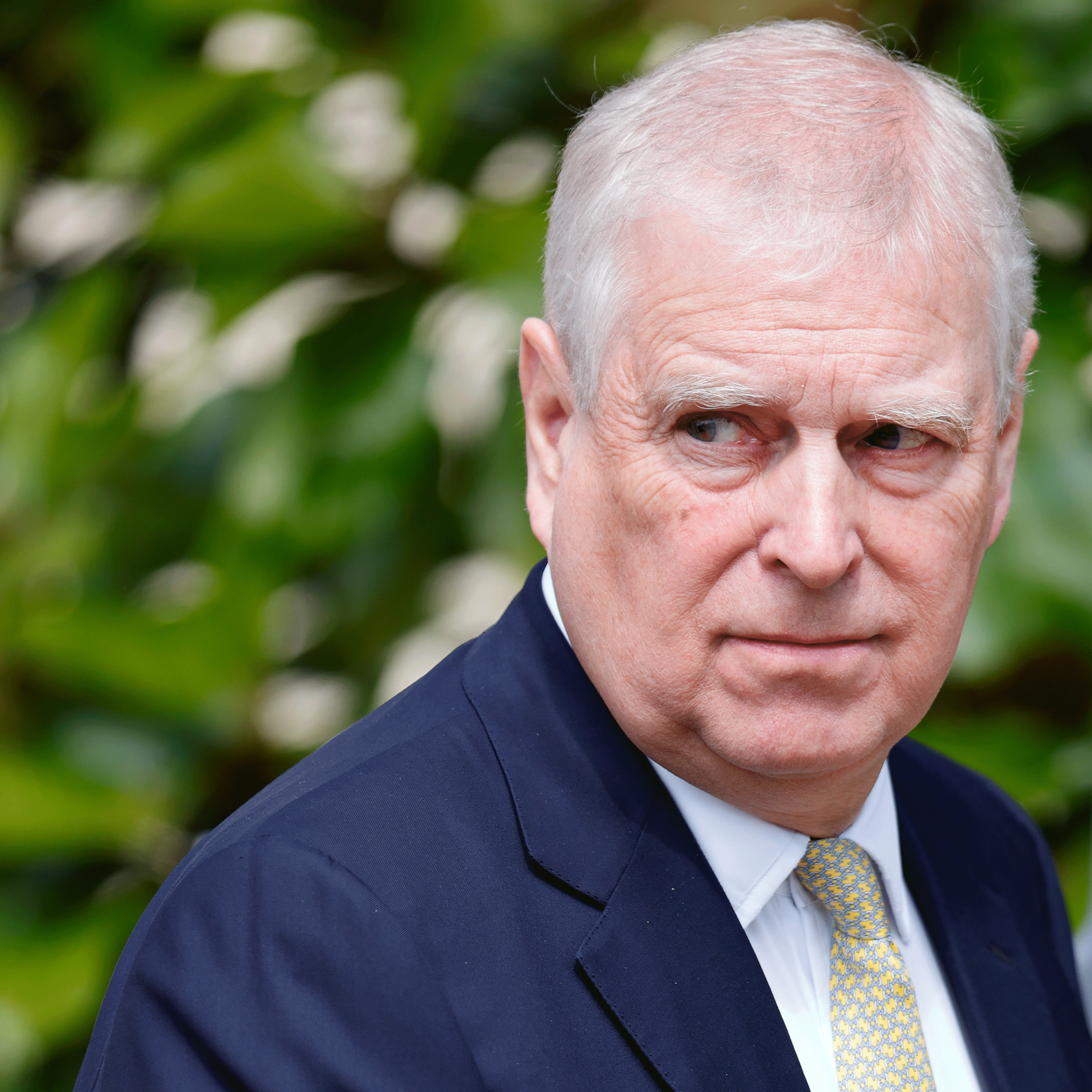108: The Footies #2: A Mental Health Crisis
Press play and read along
Transcript
Speaker 1 didn't even realize I was wasting $415 a month until I downloaded Rocket Money. I thought I had my finances under control until the app laid out all my spending and categorized it for me.
Speaker 1
Takeout, shopping, and unused subscriptions were quietly draining my account. And as a result, my savings took a backseat.
But Rocket Money doesn't just tell you what you're wasting money on.
Speaker 1 It takes action to save you money. First, the app looks at your income and monthly expenses and calculates how much you can safely spend each day to stay under your budget.
Speaker 1 Rocket Money also finds and cancels unwanted subscriptions for you and even negotiates better rates on your bills so you have more money in your pocket.
Speaker 1 On average, Rocket Money members can save up to $740 a year when using all the app's premium features. Users love the app with over 186,000 five-star ratings.
Speaker 1
It's time to simplify your finances and take control of your money. Go to rocketmoney.com/slash cancel to get started.
That's rocketmoney.com slash cancel. Rocketmoney.com slash cancel.
Speaker 3 When never thought this would happen actually happens, ServePro's got you. If disaster threatens to put production weeks behind schedule, ServePro's got you.
Speaker 3 When you need precise containment to stay in operation through the unexpected, ServePro's got you.
Speaker 3 When the aftermath of floods, wildfires, hurricanes, and other forces that are out of your control have you feeling a loss of control, ServePro's got you.
Speaker 3 Simply put, whenever or wherever you need help in a hurry, make sure your first call is to the number one name in cleanup and restoration.
Speaker 3 Because only ServePro has the scale and expertise to get you back up to speed quicker than you ever thought possible.
Speaker 3 So, if fire or water damage ever threatens your home or business, remember to call on the team that's faster to any size disaster at 1-800SERVPRO or by visiting ServePro.com.
Speaker 3 ServePro, like it never even happened.
Speaker 4 Page 94, The Private Eye Podcast.
Speaker 2 Hello, and welcome back to this special mini-series of Paul Foot Award shortlisted special bonus episodes of page 94.
Speaker 2 This is going to be the second in the series, and it's another absolutely fantastic story.
Speaker 2 We are building up to the very exciting Paul Foot Award next week, and before long, we will be able to find out which of these stories has won the coveted award.
Speaker 2 But to be honest, they're all extremely good pieces of investigative journalism. So, let's, without further ado, find out who our second shortlisted entrant is.
Speaker 4 My name's Justine Smith, and I'm a freelance, but I primarily write for The House magazine.
Speaker 4 The story is an investigation into the crisis in CAM's children's and adolescent mental health services.
Speaker 2 How did it first come to your attention?
Speaker 4
I took time out of journalism to adopt three children. So I'm one of the families that's been affected by this.
And when you have children like that, you come across lots more families.
Speaker 4 And I came to realize just how serious the situation was. And I see every day the impact on my family, other people's families.
Speaker 4 And so I thought this needs looking at, you know, how big is this problem? How long are the waits? Is this universal? Is this local?
Speaker 4
So, yeah, I suggested it to my editor. He was really interested, thankfully.
Yeah. So I FOI'd 70 providers.
Speaker 2 Wow.
Speaker 4 Yeah, it took quite a lot of work to get all those results in. Yeah.
Speaker 2 That was one of the things I wanted to ask about.
Speaker 2 But before I do, can I just ask, so was this the kind of journalism you were working in before, or was this a bit of a departure?
Speaker 4 I was a news reporter and feature reporter on the Nationals.
Speaker 4 And as I said, I took time out and I was still working as a freelance, but having three children with early life traumas
Speaker 4 takes a lot of your time and energy.
Speaker 4 So it's only that they've got older that I've got back into really throwing myself back into it.
Speaker 4 And luckily for me, journalism gives me a voice. There's lots of families out there who just don't have a voice.
Speaker 4 So I feel very happy to really thrilled. You know, it's a labor of love.
Speaker 4 It's kind of therapy for me to be able to explore these things and have a look at what's happening and
Speaker 4 really expose what's going on.
Speaker 2 Was it when your children first needed access to these mental health services that you realised the dire state they were in? Right.
Speaker 4
Yeah, I mean, I've read about it, but it's when you're actually in the middle of it yourself. Of course.
And you see the knock-on impact on their education, on their social life, on their confidence.
Speaker 4 Their whole futures are determined by how quickly they get seen by services and how effectively those services work.
Speaker 2 So now let's go back to those 70 freedom of information requests that you made. And you were finding out what exactly from them?
Speaker 4 So, I asked, I think, about 10 questions of each, and that was for historic data on waiting times, waiting lists. So, I wanted six years so I could compare and see the curve.
Speaker 4 I asked how long it was taking for a first appointment, and then comparing that to the
Speaker 4 NICE guidelines,
Speaker 4 and having a look at how long then it would take to treat first treatment, because there's a big difference between first appointment and first treatment.
Speaker 2 Right.
Speaker 4 And then kind of crunching lots and lots of numbers and having a look at regional differences and looking at the national picture and looking at Scottish, Welsh, English as well, and Northern Irish.
Speaker 2 And what did you find?
Speaker 4 I found
Speaker 4 a catastrophe.
Speaker 4 Nothing less than that, really.
Speaker 4 A terrible post-code lottery where the difference between when you might get seen for your first appointment varied between 10 days in one area, three years in another,
Speaker 4
142 weeks in one place for a first appointment. That's before you even that's just to get screened.
Then you could be waiting a long time after that.
Speaker 4
I also found a third of people who went for help and they have to be referred in by a doctor. They can't just refer themselves.
These are people who a doctor has already decided
Speaker 4 meets the threshold. A third of those people were turned away or redirected.
Speaker 2 I'm sorry.
Speaker 4 Yeah, a third of all of the children who were referred in did not get any treatment.
Speaker 2 It's quite hard to compute when you lay out the numbers that starkly. Yeah, I mean,
Speaker 4 someone told me that she works in a centre for young people who have been in care. A 17-year-old was caught in the act of trying to take his own life.
Speaker 4 was rescued from that by a member of staff. She called her local cams, said this guy needs urgent help, and they said he doesn't meet the threshold.
Speaker 2 At which point you have to start asking, well, what's the first thing that's the threshold?
Speaker 4 That was her question. She was told, stop being facetious.
Speaker 4 That was the response she had back.
Speaker 4 Someone else, I had a young boy who was nine who tried to commit suicide twice. They didn't think there were viable enough attempts.
Speaker 2 It's rated on how viable the attempt is. Apparently, yeah.
Speaker 4 Anne Longfield, the former children's commissioner, confirmed this. She said she hears this all the time.
Speaker 2 I mean, those are really, really shocking examples to hear. Is what's going on here a sudden expansion in the demand for these mental health services, or is it a collapse in the provision?
Speaker 4 It is long-term neglect of the service,
Speaker 4 underfunding through years of austerity, plus an explosion in referrals. So I found referrals for, I think it was just for neurodevelopmental
Speaker 4 referrals, new ones, had gone up by 216%
Speaker 4 in three years, I think.
Speaker 4 So, government funding went up by 7% between 2021 to 22 in real terms.
Speaker 2 Funding up by 7, and what was the other?
Speaker 4 Well, 220%, I think, was in the space of a couple of years, two or three years.
Speaker 4 So, the government will tell you they're putting more money into it, they're setting up these new centres, but the funding doesn't touch the site.
Speaker 4 And Longfield said it needs a billion pound urgent investment just to stop the crisis, just to hold back the floodgates.
Speaker 2 What do you think is causing this explosion in referrals?
Speaker 4 COVID.
Speaker 2 Right.
Speaker 4 Social media, more awareness of these conditions.
Speaker 4 I think in the past, people were just dismissed as being badly behaved.
Speaker 4 And I think now people are more aware that there are these conditions.
Speaker 4
There is evidence. I mean, they are looking into why an explosion in ADHD and they're thinking perhaps it's drinking and smoking in the womb.
They don't know. They don't know.
Speaker 2 Right.
Speaker 2 But it's, I mean, the numbers that you're describing sort of indicate
Speaker 2 it's a slightly overused word, but this is a sort of Victorian level of
Speaker 2 anguish and personal suffering that is not being met and not being adequately treated in a wealthy country. Absolutely.
Speaker 4 Another issue is that the government reduced during austerity early years interventions by 42% in funding.
Speaker 4 So they're getting to crisis before they're being seen, whereas before, perhaps they'd have been seen earlier, the families would have been helped earlier.
Speaker 2 So an early years intervention. Say a little bit more about what that might be.
Speaker 4 So that might be helping families in in need, helping families in poverty, helping families who've got mental health issues, helping families in poverty,
Speaker 4 Shurstar centres, just keeping an eye on these kids from a young age. That's not happening, so they're reaching crisis point now before they're seen.
Speaker 4 And now it's much more. All the money is now going to late intervention, which costs far more.
Speaker 2
Less prevention and then extremely expensive and inadequate cures. Right.
Exactly.
Speaker 2 This is a sort of niche journalistic style question, but
Speaker 2
the magazine, the publication you write for is The House. Yes.
It's Parliament's in-house magazine.
Speaker 2 Did you find that that changed how you reported the story? Or did it change perhaps the response to the story when it was published?
Speaker 4 You would think you'd have more access, wouldn't you, to politicians?
Speaker 2 Well, I would hope so.
Speaker 4
Not necessarily. It's still very hard.
That's one of the issues I found. Trying to get MPs, trying to get...
I'll tell you what,
Speaker 4 for whatever you want to say about the unelected second chamber,
Speaker 4 trying to get people from the Lords to talk to you is easy. They want to talk, they're passionate, they care, they work behind the scenes tirelessly on issues like this, a lot of them.
Speaker 4 Trying to get MPs to talk is much harder.
Speaker 2 I see.
Speaker 4 Because they don't want to make promises, they don't want to stick their necks out. You know, nobody wants to take responsibility for this huge issue.
Speaker 4 And when you think about it, these people, these children, they don't vote.
Speaker 4 Their families might do, but they might be too exhausted to even think about politics because it's a hard life looking after a child without support who has these problems.
Speaker 4 They're just not important, I don't think, to politicians.
Speaker 2 Have you noticed a change, a response, a reaction since your story was published?
Speaker 4 It was held up in the Lords and it was reported quite widely across the press. And I do feel there has been more reporting in the mainstream press on this issue.
Speaker 4 I've seen a lot more stories about this and
Speaker 4 I hope it's had some kind of impact. I really hope it has.
Speaker 4 And although we might not have the broadest readership as the Daily Mail has, it reaches the right people, you know, the policy makers. It's on the desk of every MP around the country.
Speaker 4 All civil servants read it.
Speaker 4
It is read by the people who are making these decisions. And I really hope that somewhere along the line they read it and think someone's got to do something about this.
And I'll keep going.
Speaker 4 Because I went back to the figures before this interview today, and there were 90,000 young people waiting for just for an autism appointment when I wrote this story a year ago. Now it's 117,000.
Speaker 4 That's in a year.
Speaker 4 That's an extra 27,000, more than 25% in a year. If we carry on like that,
Speaker 4 we just can't go on like that. It cannot go on.
Speaker 2 I think one of the stats you mentioned in your report is that an ADHD or autism, was this diagnosis or treatment can be up to seven years?
Speaker 4 Seven years was the longest in Belfast. In Belfast, the average
Speaker 4 first appointment was five years, and then you could be waiting a long time after that.
Speaker 4 My son was screened first of all for autism, and I think it was another two and a half to three years before he actually got a diagnosis. You get
Speaker 4 accepted or turned away at the gate, and then after that, you then wait to be seen.
Speaker 2 And if you've been turned away, do you have recourse?
Speaker 2 Can you approach again later on and say, Look, I really think there's been a misdiagnosis here?
Speaker 4 I was turned away the first time.
Speaker 4 I thought, honestly, I sat in the meeting with a nurse and thought, Thank goodness my son is showing all his autistic traits today, so we'll get through. He really was.
Speaker 4
And they turned him away and said, No. And I had to really fight and get him back in.
And then they said, Yes, very much so.
Speaker 4 So, not everyone has the capacity to do that. No.
Speaker 4 And a lot of children come from families that have got problems. There might be a single mother with three jobs, she hasn't got time to do this fighting, or with a capacity.
Speaker 4 You know, it might be that they come from a family that's got mental health problems.
Speaker 4 You know, there are so many children out there who are not advocated for, who don't have families who can fight for them.
Speaker 2 Yeah, and you've met a lot of these families on the way. Absolutely, yeah, yeah.
Speaker 2 Have they formed part of the reporting as well? Yeah, yeah.
Speaker 2 Well, it's an extraordinary story and congratulations and I can only say I'm looking forward to seeing where it goes next. Thank you.
Speaker 4 I'm keeping going with this. You know, I'm not letting it lie.
Speaker 2 Justine Smith there. Congratulations to her.
Speaker 2 And we are going to continue this series of mini Paul Foote Award special episodes over the next four days as we continue the countdown to next week's award.
Speaker 2 One more thing actually, just before we go, Justine wanted to pass on the message that if any regional journalists would like to look at the situation in their area, she's more than happy to share her data.
Speaker 2
She could be found on LinkedIn. That's it for this time.
We'll be back again tomorrow with another one of these. We'll see you then.
Goodbye.
Speaker 5 Start your journey toward the perfect engagement ring with Yadav, family owned and operated since 1983. We'll pair you with a dedicated expert for a personalized one-on-one experience.
Speaker 5 You'll explore our curated selection of diamonds and gemstones while learning key characteristics to help you make a confident, informed decision.
Speaker 5 Choose from our signature styles or opt for a fully custom design crafted around you.
Speaker 5 Visit yadavjewelry.com and book your appointment today at our new Union Square showroom and mention podcast for an exclusive discount.
Speaker 6 California has millions of homes that could be damaged in a strong earthquake. Older homes are especially vulnerable to quake damage, so you may need to take steps to strengthen yours.
Speaker 6 Visit strengthenyourhouse.com to learn how to strengthen your home and help protect it from damage. The work may cost less than you think and can often be done in just a few days.
Speaker 6
Strengthen your home and help protect your family. Get prepared today and worry less tomorrow.
Visit strengthenyourhouse.com.
Speaker 1 You know that one friend who always shows up looking sharp but swears he didn't try? That's Jack Archer. Timeless style crafted for comfort and engineered to move with you.
Speaker 1 From the boardroom to the back nine, Jack's got you covered. Jack Archer, the fit you've been looking for.
Speaker 1 New customers get 15% off your first order. Upgrade your wardrobe today at JackArcher.com.





